S.I.C.S.S.O. is usual to assign some Medal Lectures during its annual international congress: these are intended to be Plenary Presentations of 15 minutes on the most relevant topic of the field of cornea and cataract/refractive surgery.
2018: Medals awarded to
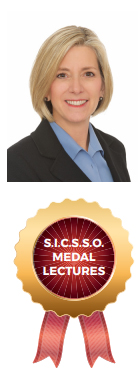
KATHRYN A. COLBY (USA)
“Rethinking Fuchs Dystrophy in the Era of Successful Descemet Stripping”
Kathryn Colby, MD, PhD, is an internationally renowned ophthalmologist with expertise in managing complex medical and surgical diseases of the cornea and ocular surface. Dr. Colby has a particular interest in Fuchs’ dystrophy, the most common cause for corneal transplantation in the United States, and is currently pioneering novel treatments for this condition. In addition, she has specific expertise in the management of ocular surface tumors, including conjunctival melanoma and squamous cell carcinoma. She was the founding director of the Pediatric Cornea service at the Boston Children’s Hospital and has recently published the first book devoted to pediatric corneal disease.
Dr. Colby is an active researcher whose contributions have enhanced outcomes for patients who require keratoprosthesis (artificial cornea) surgery. She has an ongoing interest in corneal infections and has published extensively in this area. Dr. Colby was instrumental in determining the optimal surgical techniques for placement of the implantable miniature telescope, a visionrehabilitative device for patients with macular degeneration.
Dr. Colby is a passionate educator who trained hundreds of medical students, ophthalmology residents and cornea fellows during the two decades she spent at Harvard Medical School prior to joining the University of Chicago to lead the Department of Ophthalmology and Visual Science as Chair. She currently holds the Louis Block Professorship at the University of Chicago. Dr. Colby lectures around the world on numerous corneal and clinical research topics. She has leadership roles in various national and international societies, including the American Academy of Ophthalmology and the Cornea Society. She is the recipient of multiple awards, including the Senior Achievement award and two Secretariat awards from the AAO, and a mentorship award from the AMA.

SADEER B. HANNUSH (USA)
“The Evolution of the Corneal Triple Procedure: A 3-Decade Journey”
Sadeer B. Hannush M.D. is Attending Surgeon on the Cornea Service at Wills Eye Hospital, Department of Ophthalmology at Sidney Kimmel Medical College of Thomas Jefferson University in Philadelphia, Pennsylvania. He earned his Doctor of Medicine degree from Wayne State University in Detroit, Michigan, and completed his Ophthalmology Residency at George Washington University in Washington, D.C. He then went on to fellowship training in Corneal and Refractive Surgery at Emory University in Atlanta, Georgia. Dr. Hannush’s areas of interest are full and partial thickness corneal transplantation (endothelial and deep anterior lamellar keratoplasty), permanent keratoprosthesis surgery (artificial cornea), complex cataract and anterior segment reconstructive procedures, and laser vision correction. He lectures nationally and internationally on these topics (including Canada, Mexico, Brazil, Colombia, the United Kingdom, France, Denmark, the Netherlands, Austria, Spain, Italy, Egypt, South Africa, Kenya, Lebanon, the United Arab Emirates, Singapore, South Korea, and Australia). He has multiple publications in the peer-reviewed literature and chapters in ophthalmology texts. Dr. Hannush is a Fellow of the American Academy of Ophthalmology, Diplomate of the American Board of Ophthalmology, and a Member of the American Medical Association, the Cornea Society (where he served as Program Chair for four years), the Ocular Microbiology and Immunology Group, the International Society of Refractive Surgeons of the American Academy of Ophthalmology, the American Society of Cataract and Refractive Surgery, the European Society of Corneal and Ocular Surface Specialists, and the European Society of Cataract and Refractive Surgeons.
Dr. Hannush is the Medical Director of the Lions Eye Bank of Delaware Valley and an Advisory Board Member of the Eye Bank Association of America. He is a longstanding member of the Ophthalmic Drug Panel and a consultant to the Ophthalmic Devices Panel of the Food and Drug Administration (FDA) in Washington D.C. In 1995 he served on the FDA panel that approved the excimer laser and two liquid fluorocarbons. For the past twenty-five years Dr. Hannush has been chosen to teach at the American Academy of Ophthalmology, the American Society of Cataract and Refractive Surgery, the European Society of Corneal and Ocular Surface Surgeons, and the European Society or Cataract and Refractive Surgeons annual meetings on the subjects of corneal transplantation, keratoprosthesis surgery, intraocular lens management and laser vision correction involving top national and international experts in these fields. Most of these courses describe pioneering surgical techniques that have been adopted throughout the world. Dr. Hannush has performed and taught corneal transplantation in Italy, Spain, Egypt and Kenya. He started a corneal transplantation program at Tenwek Mission Hospital in Western Kenya. He was one of the originators of W.I.R.E. (Wills International Resident Experience), during which the Wills Eye Hospital senior residents spend time abroad experiencing the delivery of ophthalmic care in a third world setting. Dr. Hannush has been named in ‘The Best Doctors in Philadelphia’ as well as ‘The Best Doctors in The United States’. In 1998 he received the American Academy of Ophthalmology’s Honor Award for distinguished service in education. At the 2008 American Academy of Ophthalmology Meeting he received the Senior Achievement Award. The Wills Eye Hospital resident class of 2000 presented him with the Excellence in Teaching Award.
2017: Medals awarded to
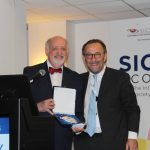
Mark Mannis, MD
Dr. Mark J. Mannis is the Fosse Endowed Chair in Vision Science Research, and Professor and Chair of the Department of Ophthalmology & Vision Science, UC Davis Eye Center at the University of California, Davis. He also serves as Medical Director of Sierra Donor Services in Sacramento, California. He completed his ophthalmology residency training at Washington University in St. Louis and a fellowship in Cornea and External disease at the University of Iowa. His primary research includes studies in the development of new anti-infective agents, corneal transplantation, visual rehabilitation of patients with corneal disease, and the management of oculodermal disease and diseases of the ocular surface. Clinically, he specializes in corneal surgery and diseases of the external eye. Dr. Mannis is editor/ author of six books: Cornea – published by Elsevier–a two volume comprehensive text on the cornea and external eye co-edited with Jay Krachmer and Edward Holland, and cited as one of the 100 most important texts in ophthalmology of the 20th century, currently in preparation for a 4th Edition; Eye and Skin Disease – a text for both ophthalmologists and dermatologists on skin diseases with ocular manifestations, co-edited with Marian Macsai and Arthur Huntley; Corneal Transplantation: A History in Profiles – co-authored and co-edited with Avi Mannis; Ocular Surface Disease co-authored with Edward Holland; Ocular
Surface Disease: Cornea, Conjunctiva and Tear Film co-authored with Edward Holland and W. Barry Lee, and Contact Lenses in Ophthalmic Practice, a manual on contact lenses, translated and edited by Dr. Mannis. Dr. Mannis was Editor-in-Chief of the journal Cornea and founding editor of Vision Pan-America: The Pan-American Journal of Ophthalmology. He has published widely in peer-reviewed journals with over 200 published papers and is a reviewer for the Archives of Ophthalmology, Cornea, the American Journal of Ophthalmology, Ophthalmology, and Cornea and Contact Lenses. Dr. Mannis is a recipient of the R. Townley Paton Award in eye banking from the Eye Bank Association of America and was a recipient of the Lew Wasserman Award in research from Research to Prevent Blindness, Inc. for his work in the development of antimicrobial peptides in ophthalmology. He has received the Moacyr Alvaro Gold Medal from the Federal University of Sao Paulo for contributions to ophthalmic education in Latin America and has received an honorary doctorate from the University of San Marcos in Lima, Peru. Most recently, he was the 2014 recipient of the Castroviejo Medal for his contributions to the subspecialty of cornea. He has served as one of
the Directors of the American Board of Ophthalmology and is President Emeritus of the Cornea Society as well as the Pan-American Association of Ophthalmology. He conducts a busy referral practice in diseases of the cornea and external eye based at the University of California, Davis.
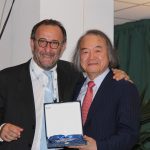
Shigeru Kinoshita, MD
Shigeru Kinoshita, M.D., Ph.D. graduated from Osaka University Medical School in 1974, and has served as the Professor and Chairman of Ophthalmology at Kyoto Prefectural University of Medicine since 1992. In the early 1980s at Schepens Eye Research Institute, he (in collaboration with Dr. Richard A. Thoft) established the concept of centripetal movement of corneal epithelium, and his groundbreaking work has shed new light on the importance of limbal epithelium. His series of findings has had an enormous impact on this subject, ultimately contributing to the development of the corneal stem cell theory. Over the past 30 years, his primary interest has been focused on the research and development of new therapeutic modalities for the cornea. Following this path, his group has recently established the system of cultivated mucosal epithelial stem cell transplantation and cultivated corneal endothelial transplantation. Dr. Kinoshita is a recipient of the 1999 Alcon Research Institute Award, the 2008 Castroviejo Medal Lecturer of the Cornea Society. He served as an ARVO Program Committee Member in the Cornea Section between 1996 and 1999, and was Vice President of ARVO in 2011. Dr. Kinoshita has also served as Associate Editor of Investigative Ophthalmology & Visual Science, and as an Editorial Board Member of Experimental Eye Research and Cornea.
2016: Medals awarded to
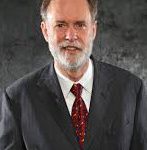
Francis Price, Jr. MD
He is the founder and president of Price Vision Group and the Cornea Research Foundation of America.
He is an internationally recognized ophthalmic surgeon and recipient of the Senior Achievement Award from the American Academy of Ophthalmology and the Barraquer Award from the International Society of Refractive Surgery. He has authored over 200 peer-reviewed publications and book chapters and been principal investigator of more than 100 clinical studies of
ophthalmic devices, medications and surgical techniques. He is also an inventor and holds several patents for ophthalmic devices. Dr. Price is a graduate of Indiana University Medical School and completed a fellowship in cornea and external disease at Tulane University. He has been active in developing and teaching endothelial keratoplasty techniques to hundreds of surgeon from around the world in intensive 2-day courses offered in Indianapolis, IN.
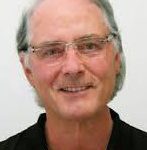
Jorg H. Krumeich, MD
He is head of the Krumeich Outpatient Hospital in Bochum, Germany. Main interests are the anterior segment of the eye. Based on training with Dr. José Barraquer in Bogotá he was one of the first Keratomileusis surgeons generating the non-freeze technique with the Barraquer Krumeich Swinger (BKS) – Set. This technique is presently rejuvenated as individually refractively carved Epikeratophakias are employed for Keratoconus III and IV. For penetrating Keratoplasties JK developed the Guided Trephine System (GTS), which is used for about 75% of the PK surgeries in Germany. This is the first system avoiding tilt during the cut as the major reason for astigmatism. It newly allows to include the donor radii with obturators of the respective measurements different for donor and recipient.
The intrastromal ring for Penetrating Keratoplasties consisting of Titanium/Molybdenum/Cobalt/Chromium was introduced ca. 2002 and used on more than 1000 cases reducing the immune reaction rate to 2,7%. The antivascular properties of the ring are also used to stop Pterygia when placed as a segment in the corneal parenchyma. Newly the non-IOP suction ring is introduced to fixate the globe for Lasik surgery to avoid movements of the eye during laser cutting.
For deep lamellar Keratoplasties JK developed the water pillow technique that allows visualization of Descemet’s for a better control of surgically baring this membrane.
Present approach for Keratoconus I and II is topic of this SICSSO presentation addressing a closed corneal femtosecond circular incision to create a scar to stop progression of the cone. Among the awards received by JK are 4 times the Oscar for the best development at the German organization for ocular surgeons (DOC) and the gold medal of the Societa Italiana Trapianto Di Cornea (SITRAC) in Siena 2010.
2015: Medals awarded to

Mark A. Terry, M.D
Dr. Terry has been the Director of Corneal Services at the Devers Eye Institute in Portland, Oregon since 1990. He is currently a Professor of Clinical Ophthalmology at the Oregon Health Sciences University as well. He earned his undergraduate degree at Yale, his medical degree at St. Louis University, and his residency in Ophthalmology in San Francisco. He completed his Corneal Fellowship in 1985 at the University of Oklahoma and since that time has limited his referral practice to the subspecialty of Cornea, Anterior Segment and Refractive Surgery. He has been the Medical Director of the Lions Eye Bank of Oregon since 1990 and is also the Scientific Director of the Lions VisionGift Research Laboratory. Dr. Terry has lectured extensively nationally and internationally and widely published his research work in the areas of corneal transplantation, corneal physiology, refractive surgery, and dry eye. He began in March of 2000 the first U.S. clinical series of Deep Lamellar Endothelial Keratoplasty (DLEK), a technique of endothelial keratoplasty (EK) which replaces the endothelium without surface corneal incisions or sutures. He currently performs variations of endothelial keratoplasty known as DSAEK and DMEK. His prospective study of endothelial keratoplasty is now the largest and longest running prospective series in the world and he has been actively training surgeons in endothelial keratoplasty for over 12 years.
He is the founder and leader of the international Endothelial Keratoplasty Group (EKG), which continues a multi-site, international investigation of this new approach to corneal transplantation.

Gerrit R.J. Melles, MD, PhD
In 1997, after completing medical school and specializing in ophthalmology, Dr. Melles started focusing on the treatment of corneal diseases. In 2000 he founded the Netherlands Institute for Innovative Ocular Surgery (NIIOS) with several associated organizations, among which Melles Cornea Clinic Rotterdam and Amnitrans EyeBank Rotterdam. At NIIOS, in joint effort with a dedicated team, Dr. Melles developed and continuously evaluates diverse techniques for both tissue preparation and corneal transplantation, such as: DALK (Deep Anterior Lamellar Keratoplasty), DLEK (Deep Lamellar Endothelial Keratoplasty), DSEK / DSAEK (Descemet Stripping (Automated) Endothelial Keratoplasty), DMEK (Descemet Membrane Endothelial Keratoplasty), DMET (Descemet Membrane Endothelial Transfer) and Bowman Layer Implantation. His objective is to treat corneal disorders with techniques that are minimally invasive. In addition he developed several instruments and medical devices to facilitate the surgical procedures. Furthermore he is actively involved in the development of ophthalmic staining solutions, such as VisionBlue®, MembraneBlue®, ILM-Blue® and MembraneBlue Dual®. On all these fields Dr. Melles has authored a broad range of scientific publications in high-ranking peer-reviewed scientific journals. Under his supervision more than 650 patients have had surgery with the DMEK technique that he developed. The American Academy of Ophthalmology awarded him its Achievement Award in 2005 and 2009. Other honours and awards Dr. Melles received for his contributions to the treatment of corneal disorders by advanced lamellar keratoplasty are for example: 5th Optic lecture of the Royal College of Ophthalmologists, Liverpool, United Kingdom (2013), 13th Montgomery lecture of the Irish College of Ophthalmologists, Dublin, Ireland (2013), Ridley-Lecture at 25th DOC congress, Nürnberg, Germany (2012), Membership of Honor, El Instituto Barraquer, Barcelona, Spain (2010), Dr. Eduard Konrad Zirm award, Rohovkový Kongres, Prague, Czech Republic (2009), Charles W. Tillett, M.D. lecture, Johns Hopkins University, Baltimore, USA (2008), Mediglia d’Oro (golden medal) at 7th SITRAC congress, Milan, Italy (2008). Dr. Melles has a great interest in classical music and is an amateur composer. To share his passion for music with others he founded the Melles Classical Music Foundation (MCMF) with the MCMF orchestra. Aim of the foundation is to organize two to three performances a year of mostly self-composed symphonic music and to give talented young musicians the opportunity to perform in a concert setting.
2014: Medals awarded to
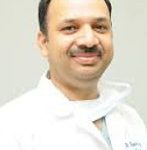
Dr Rajesh Fogla
Completed MBBS from Gauhati Medical College, Assam, India in 1991 with distinction and gold medal in General Surgery & ENT.
Post graduation in Ophthalmology from Sankara Nethralaya, Chennai. Completed Diplomate of National Board (DNB) Ophthalmology in 1997.Fellowship of Royal College of Surgeons of Edinburgh in 1998.
Master of Medicine (Ophthalmology) from National University of Singapore in 1998.
Completed Fellowship in Cornea and External Diseases from Sankara Nethralaya in 1998.
Worked as Consultant at Sankara Nethralaya from 1998 -2005.
Established Eye unit at Apollo Hospitals, Colombo, Sri Lanka in 2002 & worked as a consultant from 2003-2003. During this time, introduced LASIK for the first time in Sri Lanka in 2002.
Senior Consultant, Director Cornea Clinic, at Apollo Hospitals Hyderabad from 2005 to present. Visiting Senior Consultant to Lanka Hospitals from 2006 to present.
Clinical interest in Corneal Disorders, Refractive Surgery, & Ocular SurfaceReconstruction.
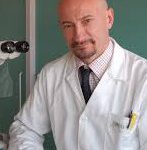
Dr Diego Ponzin
Diego Ponzin, MD is Director, Medical Director and Corneal Consultant of the Veneto Eye Bank Foundation in Venice, Italy. His clinical fields of interest include the ocular surface and corneal diseases, cornea biology, storage and selection for transplantation.
He obtained his medical degree at the University of Padua, Italy and his postdoctoral diploma in Ophthalmology at the University of Udine, Italy.
He has been Research Associate at the Department of Immunology of the FIDIA Research Laboratories in Padua, and Expert for eye banking of the Consulta Nazionale Trapianti, Rome.
During his career, he received the Fidia Research Award (1991), the Fellowship “Franco Lenzoni” from the Associazione Italiana Donatori Organi (1996), he was honorary Member of the Italian Society for Corneal Transplantation (2000), and obtained the Scientific Research Award from the Italian Society of Ophthalmology in 2005. He also got the 2009 “Best Poster” Award, American Academy of Ophthalmology, the Best paper in session, the 2012 Global Ophthalmology Awards Program from Bayer, and the 2013 Gold Medal from the Italian Society for Corneal transplantation.
Besides his involvement as reviewer of several journals (e.g. the British Journal of Ophthalmology, European Journal of Ophthalmology, Cornea, etc), he is (co-)author of more than 50 full papers in peer-reviewed journals, 10 book chapters and 10 invited reviews.
2013: Medals awarded to
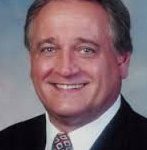
Dr. Jack T. Holladay
Dr. Jack T. Holladay is a Board Certified Ophthalmologist, who received a Medical Degree and Distinguished Alumnus Award from the University of Texas and a Master’s and Bachelor’s Degree in Electrical Engineering from Southern Methodist University. He is a Clinical Professor of Ophthalmology at Baylor College of Medicine, the author of three books, hundreds of chapters and articles in peer reviewed scientific journals and serves on several editorial, medical and scientific advisory boards as well as holding numerous patents. He is currently the Chair of the FDA/AAO Task Force charged with developing guidelines for accommodating and extended depth of focus (EDOF) IOLs.

Prof. Edward J. Holland
Dr. Holland is the Director of Cornea Services at Cincinnati Eye Institute and Professor of Ophthalmology at the University of Cincinnati. He attended the Loyola-Stritch School of Medicine in Chicago and trained in Ophthalmology at the University of Minnesota. He completed a fellowship in cornea and external disease at the University of Iowa, and a second fellowship in ocular immunology at the National Eye Institute, National Institutes of Health in Bethesda, Maryland.
Dr. Holland formerly served as the President for the American Society of Cataract and Refractive Surgery from 2011-2012. He was also a member of the Executive Committee and now serves as the Program Chair. Dr. Holland was a former member of the Board of Trustees for the American Academy of Ophthalmology. He has also been the Secretariat of the Annual Meeting for the American Academy of Ophthalmology. He was awarded the Life Achievement Honor Award at the 2012 American Academy of Ophthalmology Annual Meeting. Dr. Holland has served as the Chair of the Eye Bank Association and was the former Chair of the Medical Advisory Board for the Eye Bank Association of America. He is the past President of the Cornea Society and previously served on its Board of Directors.
Dr. Holland has been awarded the Castroviejo Award from the Cornea Society in 2013, the Senior Achievement Award and The Honor Award from the American Academy of Ophthalmology. He was awarded the Binkhorst Medal by the American Society of Cataract and Refractive Surgery in 2008. He was a recipient of the 2002 Paton Society Award given by the Eye Bank Association of America. Among other honors, Dr. Holland has been listed in the “Best Doctors in America.”
As the Director of Cornea Services at the Cincinnati Eye Institute, Dr. Holland has attracted worldwide referrals for medical and surgical corneal problems and for stem cell transplantation. His clinical interests include Corneal Transplantation, Cataract Surgery, and Ocular Surface Transplantation.
2012: Medals awarded to
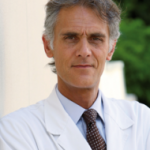
Dr. José Güell
Founding partner of IMO and Coordinator of the Cornea, Cataract and Refractive Surgery Department of the IMO.
Doctor of Ophthalmology from the Autonomous University of Barcelona (UAB) and Coordinator of Anterior Segment at the European School for Advanced Studies in Ophthalmology (ESASO) (USI in Lugano).
President of the European Society of Cornea and Ocular Surface Disease Specialists (EUCORNEA).
Lecturer in the Master’s Degree in Cornea and Refractive Surgery and Master’s Degree in Anterior Segment of the IMO, Institute of Ocular Microsurgery.
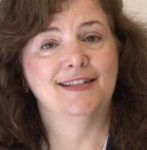
Dr. Cynthia Roberts
Dr. Roberts serves as Director of Research in the Department of Ophthalmology, and has a 20% cross appointment in Biomedical Engineering where she advises Ph.D. and M.S. students in vision research. Dr. Roberts is an excellent cross-college bridge between Medicine and Engineering.
Dr. Roberts research interests include corneal and ocular biomechanics in cornea, refractive surgery and glaucoma; in vivo measurement of corneal biomechanics including ultrasonic and dynamic topographic techniques, as well as ophthalmic imaging applications including corneal topography, Scheimpflug tomography, and Optical Coherence Tomography. She received a research award from the Columbus Foundation to investigate a new biomechanical mechanism of damage of the optic nerve in glaucoma, which is one of 5 funding priorities of the NEI in the area of glaucoma.
She has given over 170 invited scientific presentations, both domestically and internationally, with 10 given in the past year including those in France, England, Austria, Egypt and Cyprus. Dr. Roberts has participated in over 140 scientific abstracts, with 6 ARVO paper/posters in 2012. She has served as Session Chair, Moderator, or Panelist at multiple scientific meetings.
Dr. Roberts continues to serve on the Editorial Board of 2 major journals in Ophthalmology, as well as the Selection Committee for a Fellowship in Vision Research offered by Prevent Blindness Ohio. She consults for multiple medical device companies.
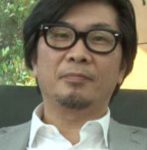
Prof. Donald Tan
Donald Tan is the Arthur Lim Professor in Ophthalmology at the Ophthalmology and Visual Sciences Academic Clinical Program of Duke-National University of Singapore Graduate Medical School, Senior Consultant at the Singapore National Eye Centre, and Professor of Ophthalmology at the Yong Loo Lin School of Medicine, National University of Singapore. A founding member of the Singapore National Eye Centre, Professor Tan was its Medical Director from 2008-2014, and past Chairman of the Singapore Eye Research Institute prior to that. Trained as a corneal subspecialist, his main clinical and research interests lie in the newer forms of lamellar corneal transplantation, corneal infections, keratoprosthesis surgery, and corneal refractive surgery, including myopia epidemiology and pharmacological approaches to reduce myopia progression, and he has published over 350 peer-reviewed articles (h index = 46), contributed 18 book chapters, and is the recipient of over 20 awards, which most recently include the 2013 Albrecht von Graefe Innovator’s Lecture, the CLAO 2014 Oliver H. Dabezies, Jr. Lecture, the CLAO 2015 Richard L. Lindstrom, MD Lecture, and the 2015 ASCRS Binkhorst Medal Lecture. Professor Tan is the founding and current President of the Asia Cornea Society, which he formed in 2007, and the founding and current chair of the Association of Eye Banks of Asia (AEBA). In 2012, Professor Tan became the first international President of the Cornea Society, and is currently its Past President. In 2014, he was named as the 3rd most influential ophthalmologist on The Ophthalmologist’s Power List, and was recently elected as a member of the American Ophthalmological Society in 2015.
2011: Medals awarded to

Prof. Michael W. Belin
Michael W. Belin, MD is Professor of Ophthalmology & Vision Science at the University of Arizona Department of Ophthalmology and Southern Arizona Veterans Administration Health Care System (Tucson, Arizona). He is also an Adjunct Professor of Ophthalmology at the Albany Medical College (Albany, New York) and University of Ottawa (Ottawa, Ontario). Dr. Belin is Past-President of the Cornea Society (2006-8) and currently serves a Vice-President for International Development. He is a Fellow of the Royal Australian & New Zealand College of Ophthalmology and serves on the Board of Directors, the Medical Advisory Board and the Executive Committee of the Eye Bank Association of America. Michael is also vice-chair of the American University Professors of Ophthalmology’s Fellowship Compliance Committee. Dr. Belin is a past recipient of the AAO Honor Award, Senior Honor Award, Achievment Award and a recipient of the AAO Life Time Achievment Award. He is the AAO’s representative to Australia and New Zealand and serves on the American Academy’s International Meetings Committee.
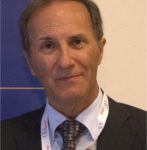
Dr. Roberto Bellucci
Dr Bellucci obtained his Medical Degree and Residency in Ophthalmology at the University of Padua, Italy. Then he worked in the Hospital and University of Verona, and became Chief of the Hospital Ophthalmic Unit and Professor of Ophthalmic Surgery (2001-2015). His surgical activity is mainly dedicated to cataract and refractive surgery, also performing live surgery in several countries. His main research interests are Cataract Surgery, Intraocular Lenses, and Refractive surgery. He published more than 200 papers in English and Italian, and gave lectures in 25 countries. A member of several scientific societies, Dr Bellucci has been the president of ESCRS for the years 2014-2015, and is the current president of the Italian Cataract and Refractive Society for the years 2015-2018.
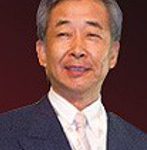
M.D. Juntaro Sugita
1975 M.D. ,Nihon University School of Medicine(Tokyo, Japan)
1975 – 1978 Resident, Nagoya University School of Medicine (Nagoya, Japan)
1978 – 1980 Anjo Kosei Hospital (Anjo, Japan)
1981 – 1982 Case Western Reserve University (Cleveland, U.S.A.)
1982 – 1983 Erlangen – Nurunberg University (Erlangen, Germany)
1983 – Sugita Eye Hospital (Nagoya, Japan)
2000 - Chief of Corneal & Refractive Service
2011 - Director of Sugita Eye Hospital (Nagoya, Japan)

